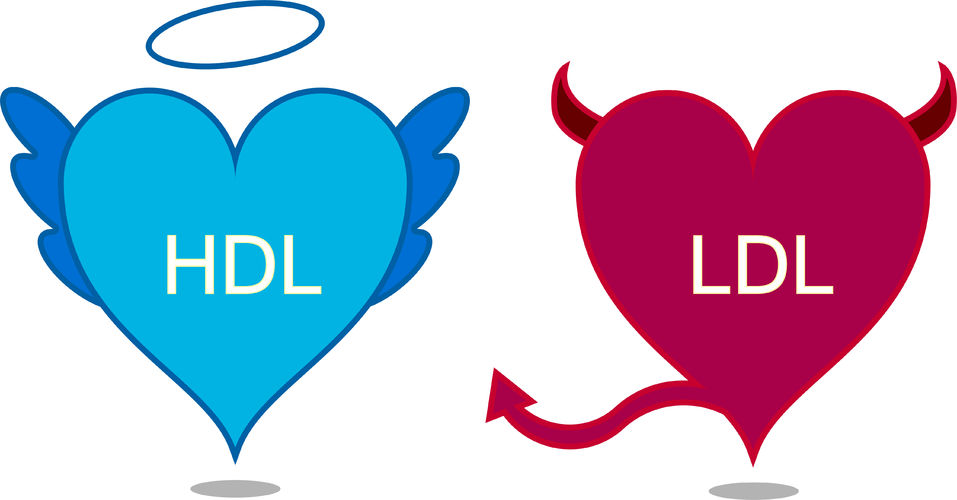 High cholesterol is a very common problem in the developed world—so much so that most people have heard it’s dangerous. The truth is, your body actually needs some cholesterol. But high numbers are a risk factor for heart disease.
High cholesterol is a very common problem in the developed world—so much so that most people have heard it’s dangerous. The truth is, your body actually needs some cholesterol. But high numbers are a risk factor for heart disease.
The details matter. Below, we’ll cover what you need to know about cholesterol, what the numbers actually mean, and common ways of lowering bad cholesterol.
What is Cholesterol?
Cholesterol is a waxy, fat-like substance found in the blood all through your body. Your body uses cholesterol to make healthy cells, hormones, and other important elements. However, your body creates all the cholesterol it needs. If there is too much bad cholesterol in your blood, it can cause problems.
The Dangers of High Cholesterol
High cholesterol can combine with other substances and form fatty deposits (also known as “plaque”) within your blood vessels. This plaque sticks to the inside walls of your arteries, which are the vessels moving blood away from your heart.
Over time, plaque deposits can build up and prevent enough blood from moving through your arteries. Coronary artery disease is where plaque has narrowed or blocked these passageways. It increases the risk of a heart attack or stroke.
That being said, cholesterol itself gets a bad rap. Since your body does need some cholesterol, it’s important to know your numbers and the ratio of “good” to “bad” cholesterol in your system.
How to Know If You Have High Cholesterol
The problem with diagnosing high cholesterol is that it has no symptoms. You must go through a blood test to know for sure. You should have your cholesterol checked every four to six years after age 20, and possibly more frequently depending on family history and health status.
There are two main types of cholesterol:
- High-density lipoprotein (HDL), which gathers extra cholesterol and transports it back to your liver.
- Low-density lipoprotein (LDL), which moves cholesterol throughout your body and can build up in your artery walls.
“Lipoprotein” refers to a combination of cholesterol and the proteins that carry it through your blood. HDL is known as “good” cholesterol, while LDL is “bad” cholesterol based on how they act in your body. Your doctor will be looking for higher HDL numbers and lower LDL numbers.
The blood test will measure HDL cholesterol, LDL cholesterol, total cholesterol, and triglycerides, which are a type of fat in your blood. High triglycerides combined with low HDL or high LDL can mean an increased risk of a heart attack.
Understanding Normal Cholesterol Levels
Here’s what to know about the cholesterol numbers for total, HDL, LDL, and triglycerides.
Total cholesterol: an optimal number is less than 200 mg/dL.
LDL cholesterol:
- Optimal: less than 100 mg/dL
- Near optimal or above optimal: 100-129 mg/dL
- Borderline high: 130-159 mg/dL
- High: 160-189 mg/dL
- Very high: 190 mg/dL or above
HDL cholesterol:
- Low (which is a risk factor): less than 40 mg/dL
- Good: 60 mg/dL or higher
Triglycerides:
- Normal: less than 150 mg/dL
- Borderline high: 150-199 mg/dL
- High: 200-499 mg/dL
- Very high: 500 or higher mg/dL
Related: 5 Health Numbers to Know for a Healthy Heart
Can You Lower High Cholesterol?
The two main factors that contribute to high cholesterol are:
- Genetics/family history and
- Lifestyle.
It’s important to understand your family history and your related risk factors. However, lifestyle changes are crucial for supporting healthy numbers and avoiding high cholesterol. Here are some things you can do:
- Eat a largely plant-based diet with plenty of vegetables and fruits as well as beans and legumes, healthy fats, and whole grains.
- Limit the number of fried foods, fatty animal foods, fast foods, and refined sugars in your diet.
- Get daily exercise (aim for at least 30 minutes a day and try these simple exercises).
- Stop smoking (or don’t start) and avoid alcohol or drink in moderation.
- Maintain a healthy weight.
- Practice mindfulness and make lifestyle choices that help you manage stress.
- Consider nutrients that support cholesterol metabolism like choline, inositol, lecithin, chromium, niacin, and vitamin B-6 (found in Cholesterol Metabolism Factors™).
The Bottom Line
In most cases, lifestyle can have a significant impact on health numbers like cholesterol. Take care of yourself by getting yours checked and considering ways you can maintain healthy levels.

Michael Schwartz, NMD
President and Founder
Michael’s® Naturopathic Programs
